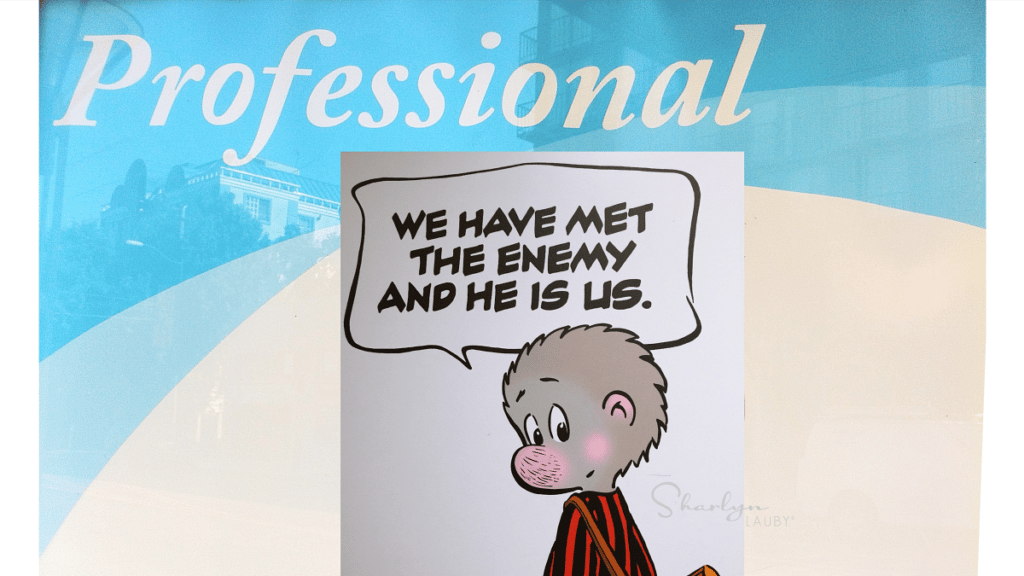3 Ways You Just Might Be Contributing to Your Own Ageism
Estimated reading time: 4 minutes
It pains me to say this, but ageism exists. Even after countless articles talking about the advantages of hiring older workers, ageism still exists. But I want to add something to the conversation about ageism.
I’m starting to see an interesting trend where the discussion about ageism is concerned. And that’s ageism might not be totally “the organization’s fault”. It might be time to ask ourselves if all the talk about ageism is somebody else’s fault or is it possible that we are creating our own self-fulfilling prophecy?
To this point, I came across an article on the site Fistful of Talent titled, “Ageism is Real – And It’s Your Fault”. The article talks about the things that we do as individuals that contribute to the “old person” perception. You know, like “I don’t have time for that technology stuff.” Or “Oh, those Millennials….” My takeaway from this article was regardless of your physical age, if you act like the stereotype then people will assume you are one.
Next Avenue also published an interview titled, “Are Concerns About Age Discrimination by Employers Overblown?”where the conversation focused around whether ageism is real. The idea being with a highly competitive employment market, at some point, organizations must realize that older workers are valuable. Again, my takeaway from the article was it’s important to keep current.
Regardless of your age, there are three things that we need to consider to ensure we’re not contributing to our own ageism.
- Believing your own negative self-talk. Self-talk is defined as those messages we tell ourselves. Think of them as those little voices inside our head. Sometimes we say them out loud, but often not. Bottom-line: Our self-talk is incredibly powerful. Especially when we say things like, “I can’t do this because I’m old.” Granted, there might be things that we can’t do anymore, but that’s not the case for everything.
Let me add one more thought. There’s a big difference in deciding you don’t want to do something because you’re older and you can’t do it. Mr. Bartender and I have said to ourselves plenty of times, “been there, done that, and we don’t need to do it anymore”.
- Stopping your own learning. This is a big one. You don’t have to earn a college degree or spend lots of money to learn. Just because you turn 40, 50, 60, or 70 doesn’t mean you can’t take a class, listen to a podcast, watch a TED Talk, or read a book. If there’s something you want to learn, do it. Especially, if you’re thinking about switching careers as you get older.
If you haven’t checked it out, sites like Coursera and edX offer massive open online courses (MOOCs). Most of them are free and have a wide variety of topics. If you have a budget, MasterClass offers programs from some very famous people. Whatever you decide is fine. Just keep learning.
- Not networking across generations. I believe this last one is harder than it looks. If you have younger family members, then you might be able to chat with them. But if you don’t (or you would prefer not to network with family), think about how you can gain exposure to different points of view. Regardless of who you speak with, it’s important to interact with a diverse group of people.
Maybe think about mentoring as a way to share your expertise and learn at the same time. There are lots of organizations that are regularly looking for mentors. It’s also possible that your current employer might have a mentoring program that you can sign up for.
Individuals have some decisions to make as they age. And one of the biggest is deciding how to accept aging. If you want others to see you as a contributor, then act like it. Please notice I didn’t say you should start acting “young”. People need to accept aging for what it is. But that doesn’t mean someone isn’t able to bring value. Send the message and demonstrate that you can.
Image captured by Sharlyn Lauby while exploring the streets of Washington, DC
27